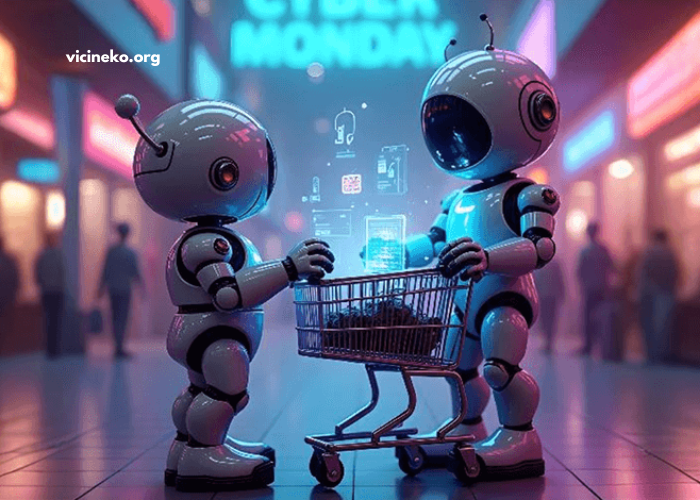Technology is evolving at a rapid pace, revolutionizing how we live, work, and interact with the world around us. From artificial intelligence to sustainable energy solutions, groundbreaking innovations are reshaping industries and transforming everyday life. In this article, we explore some of the most exciting tech innovations that are poised to change our lives forever.
Artificial Intelligence and Machine Learning
The Rise of AI and Its Potential
Artificial Intelligence (AI) has already begun to make a significant impact on various sectors, from healthcare to finance. AI systems are designed to simulate human intelligence and perform tasks such as decision-making, pattern recognition, and problem-solving. These advancements have led to the development of smart devices, virtual assistants, and autonomous vehicles.
Machine learning, a subset of AI, enables machines to learn from data and improve over time. It is transforming industries by providing enhanced data analytics, personalized experiences, and predictive capabilities. AI-powered solutions are making businesses more efficient and helping individuals make more informed decisions.
AI’s Role in Healthcare
In the healthcare sector, AI is enabling doctors and researchers to develop better diagnostic tools, personalized treatments, and predictive models for disease prevention. Machine learning algorithms can analyze vast amounts of medical data to identify patterns and trends that would be difficult for human professionals to spot. AI-powered systems can also assist in detecting early-stage cancers, predicting patient outcomes, and recommending personalized treatment plans.
Quantum Computing
The Promise of Quantum Power
Quantum computing is one of the most revolutionary tech innovations that could drastically change our future. Unlike classical computers, which process data in binary (0s and 1s), quantum computers use quantum bits (qubits), which can exist in multiple states simultaneously. This allows quantum computers to solve problems exponentially faster than classical ones, especially for tasks that involve large amounts of data or complex calculations.
Quantum computing holds enormous potential for fields such as cryptography, artificial intelligence, and drug discovery. For instance, quantum computers could break encryption methods that are currently considered uncrackable by traditional machines. Additionally, they could accelerate the process of discovering new medications by simulating molecular interactions at an unprecedented scale.
Advancements in Quantum Research
While quantum computing is still in its early stages, companies and research institutions are investing heavily in its development. Major players like Google, IBM, and Microsoft are already making strides toward building practical quantum computers. Once fully realized, quantum computing has the potential to revolutionize industries, improve cybersecurity, and drive breakthroughs in science and medicine.
5G and Connectivity
The Era of Ultra-Fast Communication
The rollout of 5G networks is another groundbreaking tech innovation that will change our lives forever. 5G technology promises to deliver ultra-fast internet speeds, low latency, and the ability to connect a massive number of devices simultaneously. This leap in connectivity will have far-reaching implications across various industries, from smart cities to autonomous vehicles.
With 5G, users will experience faster download and upload speeds, enabling seamless streaming, real-time gaming, and high-definition video conferencing. For businesses, 5G opens the door to enhanced IoT (Internet of Things) capabilities, allowing devices to communicate with each other more efficiently. In industries like healthcare, 5G will enable real-time remote surgeries and better patient monitoring systems.
The Impact on Autonomous Vehicles
One of the most anticipated applications of 5G is in the development of autonomous vehicles. These self-driving cars rely heavily on fast and reliable communication networks to process data from sensors, cameras, and other onboard systems. 5G’s low latency will allow for near-instantaneous communication between vehicles and traffic infrastructure, improving safety and efficiency on the road.
Augmented Reality (AR) and Virtual Reality (VR)
Immersive Experiences for Work and Play
Augmented Reality (AR) and Virtual Reality (VR) are transforming how we experience entertainment, education, and even work. AR overlays digital elements onto the real world, while VR immerses users in fully virtual environments. Both technologies are gaining traction in various industries, providing new ways for people to interact with digital content.
In the gaming industry, AR and VR are already making waves, with immersive gaming experiences that allow players to engage with virtual worlds like never before. Beyond entertainment, AR is being used for applications such as remote troubleshooting, where technicians can see digital instructions overlaid on real-world objects. VR, on the other hand, is revolutionizing training in fields like aviation, medicine, and the military by providing realistic simulations.
The Future of Education
In education, AR and VR offer exciting opportunities to enhance learning experiences. VR can transport students to historical events or distant planets, providing a more engaging and interactive approach to education. Meanwhile, AR can make textbooks come alive, adding interactive elements that deepen understanding. These technologies have the potential to make learning more immersive and accessible, breaking down geographical and economic barriers to education.
Biotechnology and Genetic Engineering
The Cutting Edge of Medical Advancements
Biotechnology and genetic engineering are two fields making groundbreaking strides in healthcare. Advances in gene editing tools like CRISPR have opened up new possibilities for treating genetic disorders and enhancing human health. CRISPR allows scientists to make precise changes to DNA, potentially curing diseases that were once considered incurable.
In addition to gene editing, biotechnology is advancing in areas such as personalized medicine and tissue engineering. Scientists are developing treatments tailored to an individual’s genetic makeup, increasing the likelihood of successful outcomes. Furthermore, bioengineering is enabling the creation of lab-grown organs and tissues, which could revolutionize organ transplantation and regenerative medicine.
Ethical Considerations
While biotechnology holds immense promise, it also raises ethical concerns. The ability to edit genes raises questions about the potential for designer babies, the enhancement of human abilities, and unintended consequences. As these technologies continue to develop, it will be essential for society to have open discussions about their ethical implications.
Sustainable Energy Solutions
Innovations in Clean Energy
As the world faces the challenges of climate change, sustainable energy solutions are becoming increasingly important. Renewable energy technologies such as solar, wind, and hydropower are rapidly advancing, making them more efficient and affordable than ever before. In addition, breakthroughs in energy storage systems are addressing one of the major limitations of renewable energy – the ability to store power for use when the sun isn’t shining or the wind isn’t blowing.
One of the most exciting developments in clean energy is the growth of fusion energy. Fusion, the process that powers the sun, has the potential to provide an almost limitless and clean energy source. While fusion energy has been elusive for decades, recent progress in nuclear fusion research is bringing us closer to achieving it.
The Future of Electric Transportation
Electric vehicles (EVs) are another key component of the shift toward sustainable energy. With advances in battery technology, EVs are becoming more affordable, offering longer ranges and faster charging times. Electric vehicles are not only better for the environment, but they also reduce dependence on fossil fuels and reduce air pollution, making them a crucial part of a sustainable future.
Robotics and Automation
Revolutionizing Industries with Robots
Robotics and automation are changing the way industries operate, from manufacturing to healthcare. Robots are increasingly taking on tasks that are dangerous, repetitive, or require precision, allowing humans to focus on more complex and creative work. In manufacturing, robots are being used to assemble products with high efficiency and accuracy, reducing costs and increasing productivity.
In healthcare, robotic surgeries are becoming more common, offering patients less invasive procedures and faster recovery times. Additionally, robots are being used in elderly care, providing companionship and assistance with daily activities. As robotics technology continues to improve, we can expect robots to play an even more significant role in various aspects of our lives.
The Impact on the Job Market
While automation and robotics are creating efficiencies and improving safety, they also raise concerns about job displacement. Many low-skilled jobs, such as those in warehouses and factories, are at risk of being replaced by robots. However, new job opportunities will emerge as the demand for skilled workers who can design, maintain, and operate robots increases.
Conclusion: Embracing the Future
The technological innovations discussed above are just a few examples of how the world is changing. From AI and quantum computing to clean energy and robotics, the possibilities are limitless. While these advancements hold immense promise, it is essential for society to approach them with caution and responsibility.
As we move forward, it is crucial to ensure that these innovations benefit everyone, not just a select few. By fostering collaboration between governments, businesses, and individuals, we can harness the full potential of these technologies to create a brighter, more sustainable future for all. The tech innovations that will change our lives forever are already here, and it is up to us to shape the future in a way that reflects our values and aspirations.





